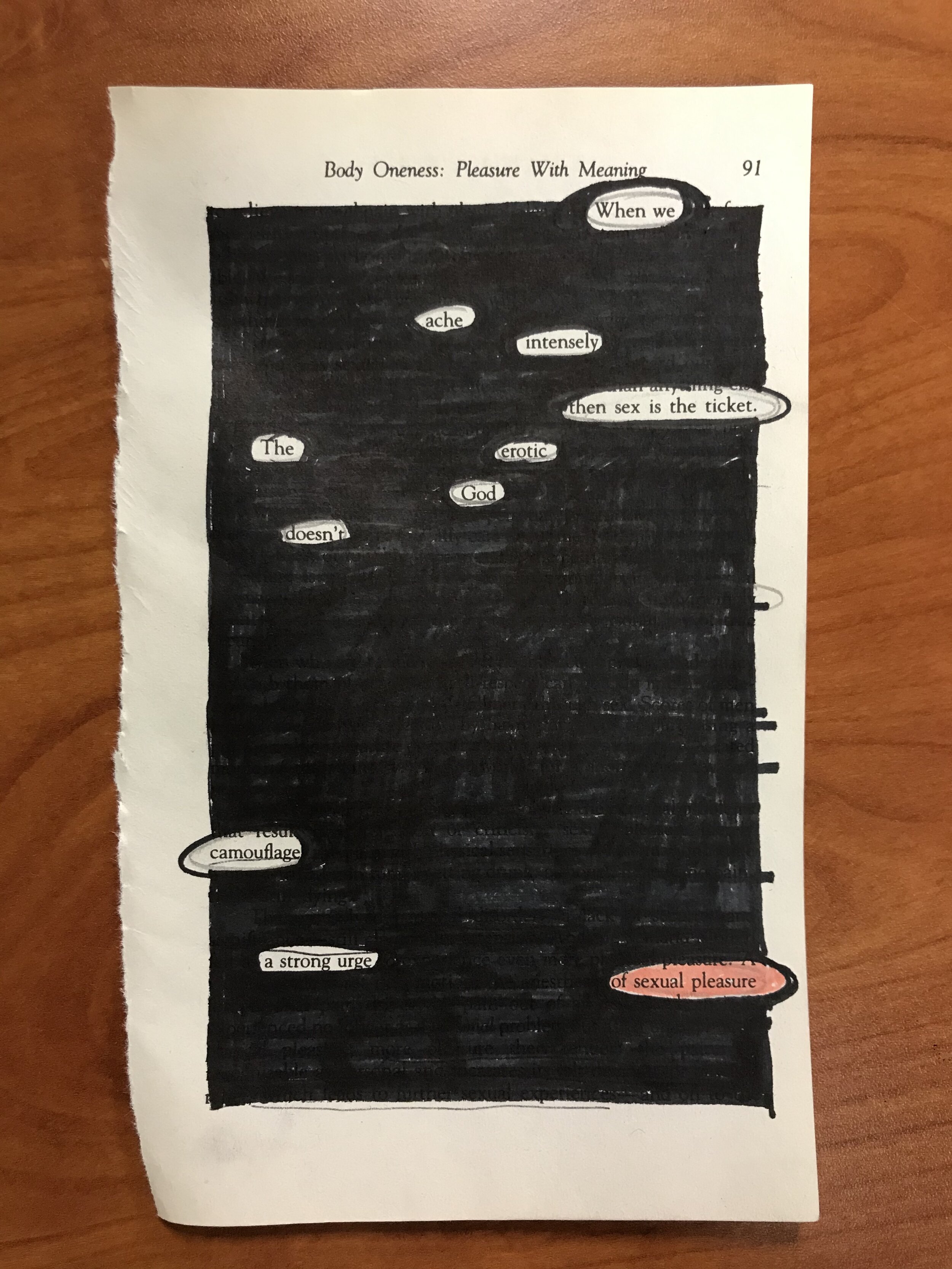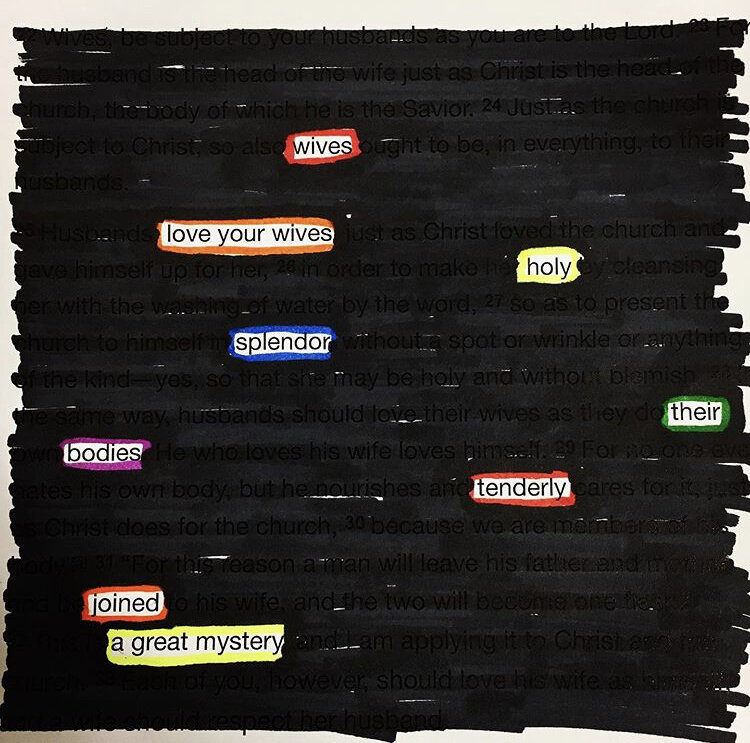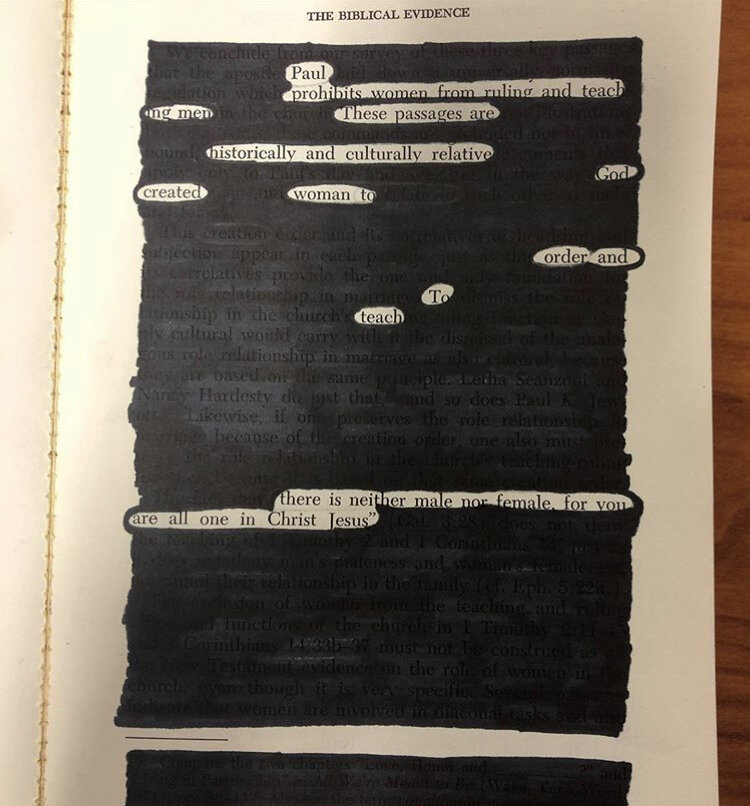Holy Blacked Out | Antonia Terrazas
Antonia Terrazas is the artist and poet behind the Instagram account @holyblackout.
Terrazas graced our class with her presence and led a black-out poetry workshop, thanks to the hospitality of the professor, Dr. Lindsey Jodrey and the sponsorship of the Center for Theology, Women, and Gender at Princeton Seminary.
Collecting books and written material, Terrazas plays with the words, reshaping and reimagining meaning, often creating some redemption for herself and for readers who have been harmed by destructive and misleading texts. The poet strings together words from the text and artistically re-renders the page, so that the new poem stands out and can be tracked through the original text.
Terrazas was first introduced to a version of this technique in a poetry class that crafted “found poetry” from newspapers. They would transcribe the “found” words onto a separate piece of paper. But part of her artistry now is letting the redacted text be a part of the work itself.
For many participants in the workshop, it was not difficult to find a text that had a negative impact. Some brought in books or pamphlets, others printed out queer-phobic codes of conduct or restrictive ordination requirements.
Once you’ve identified your source material, how do you start?
Terrazas looks for pages with especially expressive, dramatic, metaphorical, or image-driven content. Then, there are different ways to begin, depending on the poet’s perspective and mood. “You can start by taking out words that you don’t like,” Terrazas suggested, “or, I often start with a pencil and circle interesting words, literary or otherwise.” As you continue, “looking for the through-line is important, whether it’s a message, a voice, or a story.” Considering the words which she has drawn out, she asks, “How will it work best visually on the page and still be understandable as a poetic piece?” Styling the page to achieve different effects, this is when the meticulous marker work begins! Some techniques completely black-out the rest of the text, whereas others connect the words of the new poem without wholly redacting the rest. The creative possibilities with the poem and the presentation are seemingly endless. At best, the process is cathartic and encouraging. Beyond that, our hope is that the new workings of the old texts may be empowering - redemptive and healing, disturbing or exciting. Above all, may they be affirmations and blessings.
Check out @holyblackedout featured in the anthology, “Bible Belt Queers.”
“Bible Belt Queers was created to empower LGBTQIA folx from the South to share their experiences surrounding growing up queer in the Bible Belt. It's 230 pages long, full color, and contains poetry, essays, and various types of visual art from over 70 LGBTQIA artists and activists.”
Order the book “Bible Belt Queers” at PTSFeminist.etsy.com
Kelly Spencer’s artwork, erasing and recreating a page of the United Methodist ordination requirements from the UMC Book of Discipline.
“As a queer person who was both in the Methodist ordination process and actively serving a Methodist church as pastor, the devastating conversations at the denominational level of the UMC have been absolutely crushing. This project allowed me to redeem my experience and renew my call in an important, creative way.”



